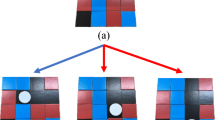Abstract
We prove two tight bounds on complexity of deciding graph games with winning conditions defined by formulas from fragments of LTL.
Our first result is that deciding LTL + (◊, ⋀, ∨) games is in PSPACE. This is a tight bound: the problem is known to be PSPACE-hard even for the much weaker logic LTL + (◊, ⋀). We use a method based on a notion of, as we call it, persistent strategy: we prove that in games with positive winning condition the opponent has a winning strategy if and only if he has a persistent winning strategy.
The best upper bound one can prove for our problem with the Büchi automata technique, is EXPSPACE. This means that we identify a natural fragment of LTL for which the algorithm resulting from the Büchi automata tool is one exponent worse than optimal.
As our second result we show that the problem is EXPSPACE-hard if the winning condition is from the logic LTL + (◊, ○, ⋀, ∨). This solves an open problem from [AT01], where the authors use the Büchi automata technique to show an EXPSPACE algorithm deciding more general LTL(◊, ○, ⋀, ∨) games, but do not prove optimality of this upper bound
Partially supported by Polish KBN grant 2 PO3A 01818.
Partially supported by Polish KBN grant 8T11C 04319.
Access this chapter
Tax calculation will be finalised at checkout
Purchases are for personal use only
Preview
Unable to display preview. Download preview PDF.
Similar content being viewed by others
References
R. Alur and S. La Torre, Deterministic generators and games for LTL fragments, Proceedings of LICS 2001, Springer Verlag, 2001, pp. 291–300.
S. Demri and P. Schnoebelen, The complexity of propositional linear temporal logics in simple cases, proceedings of STACS 1998, Springer Verlag, 1998, pp. 61–72.
Z. Manna and A. Pnueli, The temporal logic of reactive and concurent systems, 1991.
A. Pnueli and R. Rosner, On the synthesis of a reactive module, Proceedings of 16th ACM POPL, ACM Press, 1989, pp. 179–190.
A. P. Sistla and E. M. Clarke, The complexity of propositional temporal logics, The Journal of ACM 32 (1985), no. 733, 733–749.
W. Thomas, Automata on infinite objects, Handbook of Theoretical Computer Science (J. van Leeuven, ed.), vol. B, Elsevier Science Publishers, 1990, pp. 133–186.
1-, On the synthesis of strategies in infinite games, Proceedings of STACS 1995, LNCS 900, Springer Verlag, 1995, pp. 1–13.
Author information
Authors and Affiliations
Editor information
Editors and Affiliations
Rights and permissions
Copyright information
© 2002 Springer-Verlag Berlin Heidelberg
About this paper
Cite this paper
Marcinkowski, J., Truderung, T. (2002). Optimal Complexity Bounds for Positive LTL Games. In: Bradfield, J. (eds) Computer Science Logic. CSL 2002. Lecture Notes in Computer Science, vol 2471. Springer, Berlin, Heidelberg. https://doi.org/10.1007/3-540-45793-3_18
Download citation
DOI: https://doi.org/10.1007/3-540-45793-3_18
Published:
Publisher Name: Springer, Berlin, Heidelberg
Print ISBN: 978-3-540-44240-0
Online ISBN: 978-3-540-45793-0
eBook Packages: Springer Book Archive




